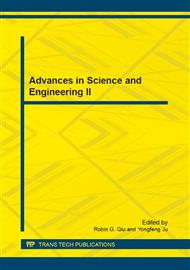[1]
Helmert M. 2003. Complexity results for standard benchmark domains in planning. Artificial Intelligence 143(2): 219~262.
DOI: 10.1016/s0004-3702(02)00364-8
Google Scholar
[2]
Fikes, R. Nilsson, N. 1971. STRIPS: A new approach to the application of theorem proving to problem solving. Artificial Intelligence 2: 189-208.
DOI: 10.1016/0004-3702(71)90010-5
Google Scholar
[3]
International Planning Competition Archives official website: http: /ipc. icaps-conference. org.
Google Scholar
[4]
Bonet, B., Geffner, H. Planning as Heuristic Search. 2001. Artificial Intelligence 129: 5-33.
DOI: 10.1016/s0004-3702(01)00108-4
Google Scholar
[5]
Hoffmann, J. and Nebel, B. 2001. The FF planning system: Fast plan generation through heuristic search. Journal of Artificial Intelligence Research 14: 253-302.
DOI: 10.1613/jair.855
Google Scholar
[6]
Helmert, M. 2006. The fast downward planning system. Journal of Artificial Intelligence Research, 26: 191-246.
DOI: 10.1613/jair.1705
Google Scholar
[7]
Richter, S. and Westphal, M. The LAMA planner: Guiding cost-based anytime planning with landmarks. Journal of Artificial Intelligence Research, 2010, 39: 127-177.
DOI: 10.1613/jair.2972
Google Scholar
[8]
Haslum, P.; Bonet, B.; and Geffner, H. 2005. New admissible heuristics for domain-independent planning. In Proc. AAAI 2005, 1163–1168.
Google Scholar
[9]
Edelkamp, S. 2001. Planning with pattern databases. In Proc. ECP 2001, 13–24.
Google Scholar
[10]
Karpas, E., & Domshlak, C. 2009. Cost-optimal planning with landmarks. In Proceedings of the 21st International Joint Conference on Artificial Intelligence (IJCAI 2009), p.1728–1733.
Google Scholar
[11]
Helmert, M.; Haslum, P.; and Hoffmann, J. 2007. Flexible abstraction heuristics for optimal sequential planning. In Proc. ICAPS 2007, 176–183.
Google Scholar
[12]
Katz, M., and Domshlak, C. 2009. Structural-pattern databases. In Proc ICAPS 2009, 186–193.
DOI: 10.1609/icaps.v19i1.13351
Google Scholar
[13]
Katz, M., and Domshlak, C. Implicit Abstraction Heuristics. Journal of Artificial Intelligence Research, 2010, 39: 51-126.
DOI: 10.1613/jair.3063
Google Scholar
[14]
Katz, M., & Domshlak, C. (2010). Optimal admissible composition of abstraction heuristics. Artificial Intelligence, 174, 767–798.
DOI: 10.1016/j.artint.2010.04.021
Google Scholar
[15]
Hoffmann J and Porteous J and Sebastia L. Ordered landmarks in planning. Journal of Artificial Intelligence Research, 2004, 22: 215-278.
DOI: 10.1613/jair.1492
Google Scholar
[16]
Karpas, E., & Domshlak, C. (2009). Cost-optimal planning with landmarks. In Proceedings of the International Joint Conference on Artificial Intelligence (IJCAI-09), p.1728–1733, Pasadena, CA, USA.
Google Scholar
[17]
Domshlak, C., Katz, M., & Lefler, S. 2010. When abstractions met landmarks. In Proc ICAPS 2010, p.50–56.
DOI: 10.1609/icaps.v20i1.13409
Google Scholar


